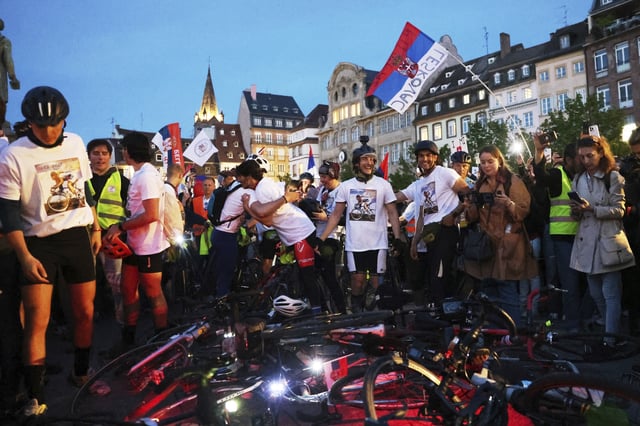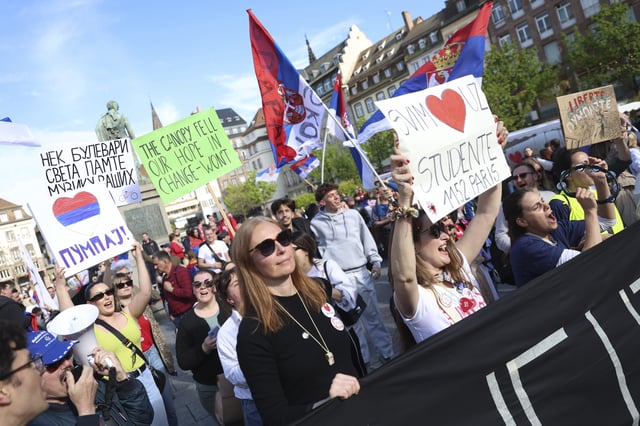Overview
- Serbian university students cycled 1,300 kilometers from Novi Sad to Strasbourg to raise awareness about corruption and democratic backsliding in Serbia.
- The protests were triggered by a November train station canopy collapse that killed 16 people, exposing systemic corruption in the country.
- Upon arriving in Strasbourg, the students were welcomed by supporters, including members of the Serbian diaspora and EU students, in an emotional show of solidarity.
- President Aleksandar Vucic has accused the protesters of colluding with Western security services, though no evidence has been provided to support these claims.
- The EU has offered a cautious response, refraining from directly criticizing Vucic, whom they view as key to regional stability, despite the growing calls for intervention.



